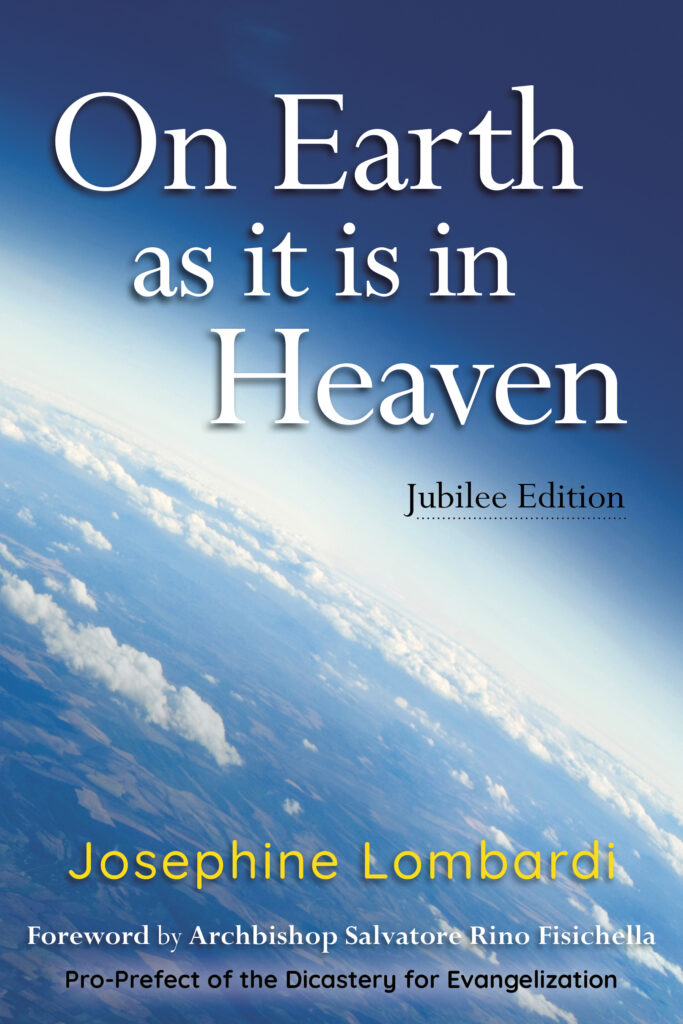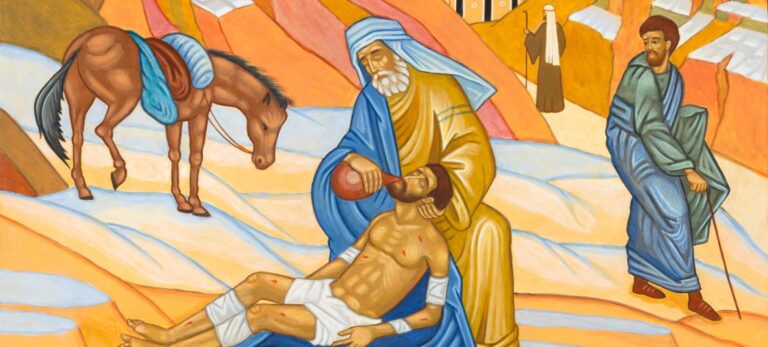
OUR FATHER: A GUIDE FOR LIVING
The Our Father is one of the world’s best-known prayers, recited daily by millions of Christians around the world. For Catholics, it holds a special place in our Eucharistic liturgy, spoken by the entire congregation with reverence.

But how many of us have ever thought of it as a guide for daily living? Josephine Lombardi has and offers her reflection on this timeless prayer in a Jubilee edition of On Earth as it is in Heaven, published recently by Novalis.
This book holds a special place in my heart as it was one of the first I ever published as the newly minted Publishing Director of Novalis back in 2010. The author was — and still is — a theologian and professor at St. Augustine’s Seminary in Toronto. Her manuscript opened my eyes to a deeper look into the meaning of the words of the Our Father and how each line holds within it some important life lessons, both spiritual and temporal.
With the upcoming Jubilee, Pope Francis asks us to renew our prayer lives with a special suggestion: “make the Our Father, the prayer Jesus taught us, the life program of each of his disciples.” That thought inspired Josephine to revisit her earlier work in light of what the last 13 years have taught her about living, loving and being faithful.
And, indeed, the years between the first edition and this new one have been nothing less than overwhelming. The long-warned devastation of global warming is now undeniable as no place on earth is safe from catastrophic flooding, droughts, wildfires and the extinction of thousands of species of life. Covid-19 killed millions worldwide and we still struggle with its aftermath. Deadly war in Ukraine has now been followed by a potentially horrendous war between Israel and its neighbours. Meanwhile, political and social polarization increases in many countries, creating fissures in our democracies and threatening the human rights we have come to value so highly.
These are temporal issues, surely, but as Pope Francis has pointed out time and again, they have a spiritual dimension. Indeed he specifically cited a spiritual crisis as one of the causes of the environmental issue.
Josephine has all of this as a backdrop to what is essentially a spiritual reflection for the individual. Suffering and pain are her concern, regardless of the causes, and her focus is the human heart and mind. In his foreword, Archbishop Salvatore Rino Fisichella, Pro-Prefect for the Vatican Dicastery for Evangelization, writes “We are grateful to Josephine Lombardi, who accompanies the reader by commenting on the individual petitions of the Lord’s Prayer, helping the reader to discover their innermost meanings. In this way, the commentary allows the prayer to delicately enter the folds of the human soul and its wounds.”
So, with Josephine as our guide, we explore each line of the prayer, understanding its biblical roots and theological foundations. More than that, the author also talks about the physiological and psychological roots of our suffering, and how our very human weaknesses can fall victim to external forces, such as drug abuse and domestic violence.
The Lord’s Prayer, then, can gird us for spiritual warfare, strengthening our understanding of God’s compassion and love for us and teaching us to set aside our own pride to allow the Spirit to do its healing work. It is not a magic cure-all for our wounds, but an important resource in our spiritual development.
Indeed, daily recital of Our Father, far from being a rote ritual, can embark us on our own “life program.” This book is a great way to start.
Joseph Sinasac is the recently retired Publishing Director of Novalis Publishing. He has been involved with religious communications for almost 45 years as an author, journalist, editor and TV and radio commentator on all things Catholic.


